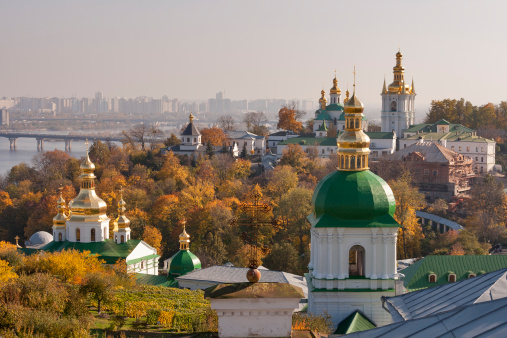Economy
Inside Ukraine's Economy, S&P Cuts Rating, President Flees
Published:
Last Updated:
Update: Based on many media reports, the government’s opposition has taken the center of Kiev, and President Viktor F. Yanukovych has left the capital.
Update: Another day of fighting appeared to lead to another truce. In the meantime, S&P cut its rating of Ukraine’s sovereign debt to triple-C, with a negative outlook, from triple-C-plus.
Update: After a short-lived truce and the start of government meetings with foreign ministers, violence has broken out in Kiev according to several media reports. It is too early to say which side broke the truce.
As unrest spreads across Ukraine, and dozens of people die or are injured in protests around its capital Kiev, the nation’s economy, not particularly strong, may rapidly crumble. The country is a large part of the region’s economy, so this deterioration will not be limited to inside its borders.
The International Monetary Fund (IMF) ranks Ukraine as the world’s 54th largest economy by gross domestic product (GDP) at $176 billion. The World Bank ranks it 51st, with GDP pegged at the same level. Its GDP is about the same size as that of Qatar and Peru.
Based on one measure, the nation is not very productive, and its population is not well paid in proportion to GDP. The IMF ranks Ukraine 109th in GDP per capita at $3,867. The World Bank ranks it in 111th. Albania and Fiji each rank slightly higher. Economists consider it a “lower middle class” nation.
The World Bank reports that Ukraine’s economy has stalled. Its GDP did not grow in 2012 and 2013. Its GDP problems are related to those of most of the European region, where the recession has lingered longer than in the balance of the world. Political problems in Ukraine make it a poor place to invest capital, according to World Bank analysis. The strength of Ukraine’s agriculture exports, mostly grain, has been the backbone of its economy. And the fundamentals of the sector are weakening. The World Bank reports:
Ukraine has tremendous agricultural potential and could play a critical role in contributing to global food security. This potential has not been fully exploited due to depressed farm incomes and a lack of modernization within the sector. The establishment of a legal framework for secure land ownership, development of an efficient registration system, and ensuring free and transparent land markets are important elements of a policy framework that could facilitate agricultural development in Ukraine.
Much of this grain goes to Russia and other large countries in the region, which makes it important to the finances and trade inside the region. The irony of Ukraine’s economic situation is that Russia is Ukraine’s primary source of energy assets, and the relationship between the two countries over energy has been poor, and even contentious. According to the CIA Factbook:
Ukraine’s dependence on Russia for energy supplies and the lack of significant structural reform have made the Ukrainian economy vulnerable to external shocks. Ukraine depends on imports to meet about three-fourths of its annual oil and natural gas requirements and 100% of its nuclear fuel needs.
Almost all experts on Ukraine’s economy point to the same threat to economic growth. With a government under siege and the possibility of prolonged political battles, Ukraine could quickly slip back into recession. Its prowess as an exporter of grain may not be enough to offset that.
If you’re one of the over 4 Million Americans set to retire this year, you may want to pay attention.
Finding a financial advisor who puts your interest first can be the difference between a rich retirement and barely getting by, and today it’s easier than ever. SmartAsset’s free tool matches you with up to three fiduciary financial advisors that serve your area in minutes. Each advisor has been carefully vetted, and must act in your best interests. Start your search now.
Don’t waste another minute; get started right here and help your retirement dreams become a retirement reality.
Thank you for reading! Have some feedback for us?
Contact the 24/7 Wall St. editorial team.